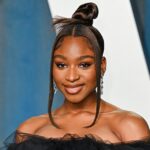To celebrate this newfound knowledge about my daughter, I offered to take her to Kenny Rogers' 2017 farewell tour in Nashville, where a gallery of country stars were scheduled to perform in his honor. Among them were the McCrary Sisters, a black gospel quartet, whose mere presence on the program made me feel calmer. But I got cold feet. Would two African American women be accepted at a country music show? Surely nowadays we can go anywhere and do anything with anyone. Good!? But I wasn't sure. In the end we didn't go, apparently for logistical reasons.
But I thought about it and wondered if I was tiptoeing around race in America. I reflected on the topic again in 2020 while watching (here) Black Country singer Mickey Guyton sings his song “Black Like Me.” The question persisted.
& amp;selection-marker-1″ id=”selection-marker-1″ class=”editor-selection- marker”& ;amp;amp;amp;amp;amp;amp;amp;amp;amp;amp;amp; amp;amp;amp;amp;amp;amp;amp;amp;amp;amp;amp;amp;amp;amp;amp;amp;amp;amp;amp;amp;amp;amp;amp;amp;amp; amp;amp;amp;amp;amp;amp;amp;amp;amp;amp;amp;amp;amp;amp;amp;amp;amp;amp;amp;amp;amp;amp;amp;amp;amp; amp;amp;amp;amp;amp;amp;amp;amp;amp;amp;amp;amp;amp;amp;amp;amp;amp;amp;amp;amp;amp;amp;amp;amp;amp; amp;amp;amp;amp;amp;amp;amp;amp ;amp;amp;amp;amp;amp;amp;amp;amp;amp;amp;amp;amp;amp; ;amp;amp;amp;amp ;amp;amp;amp;amp;amp;amp;amp;amp;amp;amp;amp;amp;amp;amp;amp;amp;amp;amp;amp;amp;amp;amp;amp;amp;amp ;amp;amp;amp;amp;amp;amp;amp;amp;amp;amp;amp;amp; amp;amp;amp;amp;amp;amp;amp;amp; ;amp;amp;amp;amp; amp;amp;amp;amp;amp;amp;amp;amp;amp;amp;amp;amp;amp;amp;amp;amp;amp;amp;amp;amp;amp;amp;amp;amp;amp; amp;amp;amp;amp;amp;amp;amp;amp;amp;amp;amp;amp;amp;amp;amp;amp;amp;amp; ;amp;amp;amp;amp;amp;amp;amp ;amp;amp;amp;amp;amp;amp;amp;amp;amp;amp;amp;amp;amp; ;amp;amp;amp; ;amp;amp;mp;span id=”selection-marker-1″ class=”editor-selection-marker”& amp;amp;amp;amp;amp;amp;amp;amp;amp;amp; amp;amp;amp;amp;amp;amp;amp;amp;amp;amp;amp;amp;amp;amp;amp;amp;amp;amp;amp;amp;amp;amp;amp;amp;amp; amp;mp;mp; amp;amp;amp;amp;amp;amp;amp;amp;amp;amp;amp;amp;amp;amp;amp;amp;amp;amp;amp;amp;amp;amp;amp;amp;amp; amp;amp;amp;amp;amp;amp;amp;amp;amp;amp;amp;amp;amp;amp;amp;amp;amp;amp;amp;amp;amp;amp;amp;amp;amp; amp;amp;amp;amp;amp;amp;amp;amp;amp;amp;amp;amp;amp;amp;amp;amp;amp;amp;amp;amp;amp;amp;amp;amp;amp; amp;amp;amp;amp;amp;amp;amp;amp;amp;amp;amp; amp;amp; amp;amp;amp;amp;amp;amp;amp;amp;amp;amp;amp;amp;amp;amp;amp;amp;amp;amp;amp;amp;lt;lt;/span& ; ;amp;amp;amp;amp;amp;amp;amp;amp;amp;amp;amp;amp;amp;amp;amp;amp;amp;amp;amp; ;amp;amp;gt;/span& amp;amp; amp;amp;amp;amp;amp;amp;amp;amp;amp;amp;amp;amp;amp;amp;amp;amp;amp;gt;
We now learn that the incident Beyoncé alluded to about not feeling welcome took place in 2016, a year before she wrote that article. Beyoncé ventured into country music with her song “Daddy Lessons,” from her Lemonade album. That song had been submitted to the Grammys but was apparently rejected to compete in the Country category. Beyoncé later performed the song with “The Chicks” (formerly “The Dixie Chicks”) at that year's Country Music Awards.
Earlier this year, when Beyoncé released “Texas Hold 'Em” and “16 Carriages” during the Super Bowl, controversy ensued when country station KYKC rejected a listener's request to play the songs since they were from Beyoncé. Claims of racism Following. But the radio station's defense was that they rejected the request only because they hadn't realized that Beyoncé had moved into the Country genre. The situation was resolved when the station's management reversed its decision. The single “Texas Hold 'Em” made Beyoncé a the first black woman to top the country music charts.









